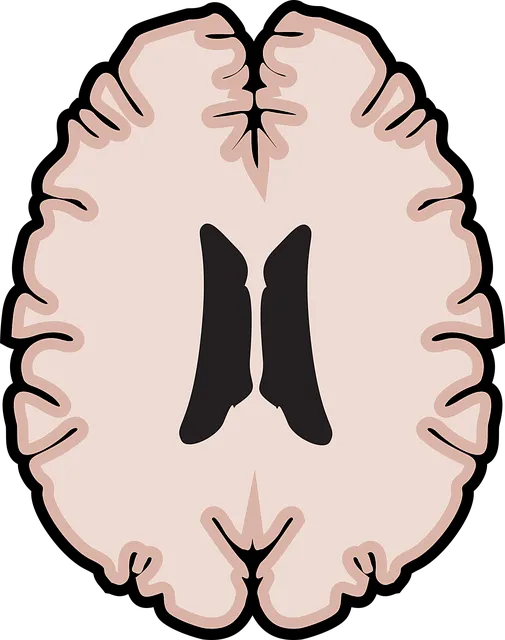Kaiser Permanente mental health Aurora leverages Crisis Intervention Teams (CITs) for immediate, holistic crisis management. Their innovative training model revolutionizes CIT preparation, enhancing patient safety and satisfaction while reducing emergency room visits. Curricula focus on de-escalation techniques, communication skills, burnout prevention, and evidence-based mood management, incorporating stigma reduction efforts. These programs transform mental health care, cultivating a culture of awareness and community resilience at Kaiser Permanente mental health Aurora.
In the realm of mental health care, Crisis Intervention Teams (CITs) serve as vital resources, offering prompt support during acute crises. This article explores the significance of CIT training programs and highlights a successful model—Kaiser Permanente’s Aurora approach. By delving into key components, we uncover how comprehensive training enhances patient outcomes and community well-being. The Aurora strategy, particularly, has revolutionized care delivery, fostering effective crisis management in diverse settings, from hospitals to community centers.
- Understanding Crisis Intervention Teams: A Necessary Resource in Mental Health Care
- Kaiser Permanente's Approach to Training: The Aurora Model
- Key Components of Effective Crisis Intervention Team Training Programs
- Benefits and Impact on Patient Outcomes and Community Well-being
Understanding Crisis Intervention Teams: A Necessary Resource in Mental Health Care

In today’s complex healthcare landscape, Crisis Intervention Teams (CITs) have emerged as a vital resource within mental health care systems, particularly in areas like Kaiser Permanente mental health Aurora. These specialized teams are designed to provide immediate and effective support for individuals experiencing severe emotional distress or crisis. CIT members, typically comprising mental health professionals, paramedics, and other trained personnel, offer a coordinated response that combines medical, psychological, and social services. Their goal is to de-escalate high-risk situations, promote emotional well-being promotion techniques, and prevent burnout among healthcare providers by utilizing evidence-based interventions.
The integration of CITs into mental health care routines has proven beneficial in reducing the use of restraints and emergency room visits while enhancing patient safety and satisfaction. By fostering a collaborative approach to emotional regulation, these teams contribute to a more holistic and effective treatment environment. With burnout prevention strategies tailored for healthcare providers, CIT training programs ensure that frontline workers are equipped to handle crises with compassion and expertise, ultimately improving outcomes for those seeking mental health services in communities like Kaiser Permanente mental health Aurora.
Kaiser Permanente's Approach to Training: The Aurora Model

Kaiser Permanente, a leading healthcare organization, has pioneered an innovative approach to crisis intervention team (CIT) training through its Aurora Model. This model is designed to equip mental health professionals with comprehensive skills for managing and preventing crises in various settings, including community outreach programs. The Aurora Model takes a holistic view of risk management planning for mental health professionals, addressing not only acute situations but also focusing on depression prevention strategies.
By implementing this approach, Kaiser Permanente ensures that its teams are well-prepared to handle complex scenarios effectively. The model fosters collaboration among healthcare providers, fostering an environment where knowledge and experience are shared. This collaborative spirit is essential in community outreach programs, enabling professionals to offer tailored support and interventions that resonate with diverse populations. Through the Aurora Model, mental health professionals gain valuable insights into navigating challenges and providing quality care, thereby enhancing overall community well-being.
Key Components of Effective Crisis Intervention Team Training Programs

Effective crisis intervention team (CIT) training programs are meticulously designed to equip healthcare professionals with the necessary skills to handle mental health crises in various settings, including facilities like Kaiser Permanente mental health Aurora. The key components of such programs focus on enhancing communication and de-escalation techniques, ensuring that team members can safely and effectively interact with individuals experiencing acute distress or a breakdown.
These training curricula emphasize practical, hands-on exercises to foster a collaborative environment where team members learn to recognize signs of mental illness, understand the complexities of burnout prevention, and implement evidence-based strategies for mood management. Moreover, CIT training programs often incorporate mental illness stigma reduction efforts, aiming to create supportive spaces that promote understanding and empathy among care providers.
Benefits and Impact on Patient Outcomes and Community Well-being

Crisis intervention team training programs play a pivotal role in enhancing patient outcomes and fostering community well-being. By equipping individuals with the skills to recognize and respond to mental health crises, these initiatives ensure that support is readily available when it matters most. Kaiser Permanente mental health Aurora, for instance, has witnessed significant improvements in patient care through such programs. Trained crisis interveners can de-escalate situations, provide immediate assistance, and connect individuals with appropriate resources, thereby reducing the burden on emergency services and promoting more effective long-term solutions.
Moreover, these training programs contribute to a broader Mental Health Awareness culture within communities. They encourage the development of Self-Care Practices and Routines for Better Mental Health, empowering individuals to take proactive measures in managing their well-being. This collective shift not only benefits those directly affected by mental health crises but also fosters a supportive environment where everyone feels equipped to lend a helping hand, ultimately strengthening community resilience.
Crisis intervention team (CIT) training programs, such as the innovative Aurora Model developed by Kaiser Permanente, are vital resources for enhancing mental health care. By equipping healthcare professionals with the necessary skills and knowledge, these programs improve patient outcomes and foster better community well-being. The key components highlighted in this article—including comprehensive curriculum, practical simulations, and ongoing support—are essential to effective CIT training. Adopting evidence-based approaches like Kaiser Permanente’s Aurora Model can revolutionize mental health support, ensuring that individuals in crisis receive timely and effective interventions.






